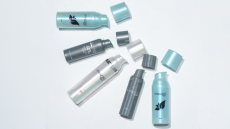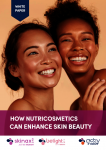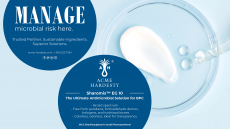UEBT targets the North American beauty supply chain

The organization has been increasing its reach into the North American region, and has started to work with a number of business in the United States.
CosmeticsDesign-USA (CDU) spoke to UEBT Executive Director, Rik Kutsch Lojenga (RKL), who has been in the position since the organization’s inception in 2008. In this interview Lojenga explains about how the work it does with beauty businesses to encourage practices that encourage biodiversity with the ultimate goal of reducing the environmental impact and protecting farm workers and communities.
CDU: What is the UEBT's aim with the beauty and personal care industry? Is the intention to work exclusively with suppliers or do you also want to work with brands?
RKL: UEBT is a non-profit that works with companies in all stages of the value chain, including brands, international processors, and suppliers such as local processing companies, farms, and cooperatives. At the brand level, we are working now with 15 international brands that have become members of UEBT. UEBT membership means that these brands make a set of commitments focused on ethical sourcing of natural raw materials. This includes responsible sourcing due diligence and prioritization of selected natural raw material supply chains to drive positive impact for people and biodiversity. They may promote this through local projects focused on biodiversity, farmer income, agricultural practices or climate change resilience, for example. They may also choose to verify or certify and of these elements of the supply chain against the UEBT standard.
CDU: What does the UEBT mean to suppliers and what is the organization doing to get the message out about the benefits of working with the UEBT?
RKL: Local suppliers are at the core of UEBT's work. They work with local farmers, cooperatives or wild collectors to implement practices that reduce pressure on people and biodiversity, or contribute to conservation and regeneration of nature and increase revenues of local producers. Currently 70% of the UEBT membership consists of local suppliers. They are an important part of our vibrant association of committed companies and are active participants in UEBT.
In view of the growing interest in the beauty and personal care markets in ethical and responsible sourcing practices, many suppliers engage with us to assess, make improvements and sometimes certify their practices against the UEBT standard. Others submit information on their practices at the field level through our UEBT supplier due diligence platform, which we are developing with several brands and international processors as a solution for conducting due diligence in supply chains for natural raw materials. Few existing tools focus on botanical ingredients and the important field-based risks at the production level – related to pickers, producers and focused on both the social and environmental risks.
One of the things we hear most from suppliers to the beauty and personal care sectors is that a supply chain needs to be a partnership. This means that buyer companies such as brands and international processors need to move from transactional relationships with suppliers. towards more engagement.
CDU: And what does the UEBT mean to consumers? What is your approach to educating consumers about what the organization does?
RKL: Direct consumer engagement is not really UEBT's focus. Our aim is to support brands to strengthen their sourcing systems and practices along the supply chain so that they can communicate these to their clients in line with their own unique value proposition. Each brand has a different way of engaging with its consumer base and the role of ethical sourcing in their positioning differs from brand to brand.
UEBT does offer certification programs as one of the tools that companies may use to make consumer-facing claims about sourcing of their ingredients. The regulatory environment in the US and EU are looking more at claims on-pack and generally these should be credible, truthful, with a robust system behind them, and backed up by an independent organization. UEBT offers a certification label for this purpose, and it follows good practices on labelling and claims.
We also encourage brands to talk about UEBT's vision in consumer campaigns, such as highlighting their commitments and local projects during International Biodiversity Day or similar events.
CDU: UEBT is now working with ingredients suppliers in the US, specifically Oh, Oh Organic, what does this development represent to the organization?
RKL: We have been working with many brands in Europe for some time, but more recently are working directly with US brands and suppliers, and this is a really welcome development for us. We see that US companies are beginning to think more about biodiversity, regenerative practices, decent wages and fair prices. One of our projects at UEBT has been a bi-annual research report called the Biodiversity Barometer. Each year we interview a representative sample of USA consumers, alongside several other countries. We have seen that year after year, in the US, consumer’s awareness of biodiversity is growing. When we started interviewing people in the US in 2009 only 48% could define biodiversity somewhat accurately. Today that is over 70% of people. We also see that each year, consumers increasingly feel that the beauty sector needs to protect biodiversity. In fact, in our last report, US consumer-awareness was higher than ever before on these points, and ‘ethical sourcing of ingredients’ was cited as one of the top three purchase drivers of consumers.
CDU: What are the primary reasons for beauty brands and suppliers to work with the UEBT?
RKL: For the beauty sector, now is the time to act on biodiversity. As more and more companies in beauty and personal care look towards becoming nature positive, biodiversity is a topic where there are not only risks but also strategic opportunities. A UEBT report on beauty and biodiversity, which we’ve just launched in collaboration with the World Economic Forum, highlights that focusing on biodiversity is critical not only to compliance with emerging due diligence rules, but also the most meaningful way for companies in the sector to make a difference. The report also shows that addressing biodiversity along supply chains cannot be separated from action to ensure equity and respect for human rights. For more findings and key action points, please see https://uebt.org/resource-pages/deep-dive-on-beauty-and-biodiversity
CDU: What is the aim of the organization in the future? In what position would you like to see it in the next ten years?
RKL: For us, this is all about the impact on people and biodiversity. We would like to increase impact by seeing more companies engage in UEBT programs, but also to see companies expanding the work on the ground to more supply chains. This means working to manage risks in their supply chains but also capturing more opportunities for positive impact on people and nature. We also plan to support companies to join forces more often, to combine forces and address some challenges that may exist in sourcing areas, and that cannot be addressed alone.













